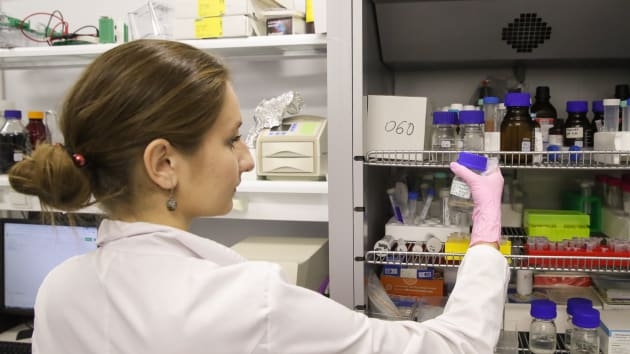A group of scientists have questioned the reliability of data published by Russian epidemiologists on early clinical trials of its “Sputnik V” coronavirus vaccine, with one telling CNBC that Russia needs to explain and clarify its results.
In an open letter to the editor of The Lancet medical journal, in which Russia’s Gamaleya Research Institute of Epidemiology and Microbiology published early-stage trial results of its coronavirus vaccine last Friday, a group of scientists said the data was incomplete and had shown some “unlikely patterns.”
They said the results showed that groups of participants had reported identical antibody levels at different points in the study. There are 27 signatories of the letter so far — predominantly scientists based in Europe but also including several in the U.S. and Asia.
“There are several data patterns which appear repeatedly for the reported experiments,” the open letter said. “On the ground of simple probabilistic evaluations the fact of observing so many data points preserved among different experiments is highly unlikely.”
The scientists were also concerned at the lack of original numerical data presented in The Lancet, saying that “no conclusions can be definitively drawn on the reliability of the data presented, especially regarding the apparent duplications detected.”
“While potentially of great interest, the research described in the article published by Lancet presents several different points of concern,” Enrico Bucci, a professor at Temple University in the U.S., said in a separate blog post. Bucci was also one of the original authors and signatories of the open letter to the editor of The Lancet.
Explaining his and his fellow signatories’ concerns, Bucci told CNBC on Thursday, that “as a group of scientists, we think that the data published are far from complete.”
“At this point, I need an explanation and we need clarification, the list of signatories need and ask for clarification … The point here (is that there’s) missing data, and strange data patterns. We cannot reach a conclusion on this vaccine without having full access to the data.“
The Gamaleya Institute was not immediately available to comment when contacted by CNBC on Thursday. Earlier, however, it rebuffed the critique of its vaccine, with Denis Logunov, a deputy director at the institute, issuing a statement in which he said “the published results are authentic and accurate and were examined by five reviewers at The Lancet,” Reuters reported.
On saying it was unusual to not be presented with the full data from clinical trials, Bucci made the comparison with the publication of early-stage clinical trial results of the Oxford University-AstraZeneca vaccine. In this case, he said, the authors of the study provided 128 pages of supplementary material for peers to review. “If you compare the two (studies) … you can see that there’s something missing in the Russian study.”
Bucci said the lack of complete data was “the product of the rush to get important things published,” adding that “all over the world, there is an undue pressure on scientists, and on clinicians, to hand over what they’re doing before they’re ready.”
Giving another example of unexplained results, Bucci said part of the study appeared to show different immune cells producing identical responses in a group of individuals. “There are two different kinds of immune cells, CD4 and CD8, and nine out of nine are exactly or very similar values for CD4 and CD8 cells. These are completely unrelated cells, how can it be that you have nine people that have exactly the same number of CD4 and CD8?”
Bucci said The Lancet had now asked the authors of Russia’s study to respond to the concerns raised by the signatories. CNBC contacted the journal for further comment and is awaiting a response.
"Forbes Georgia-ის სარედაქციო ბლოგპოსტების სერია "როგორ გამდიდრდა“ და "საქართველო რეიტინგებში".














